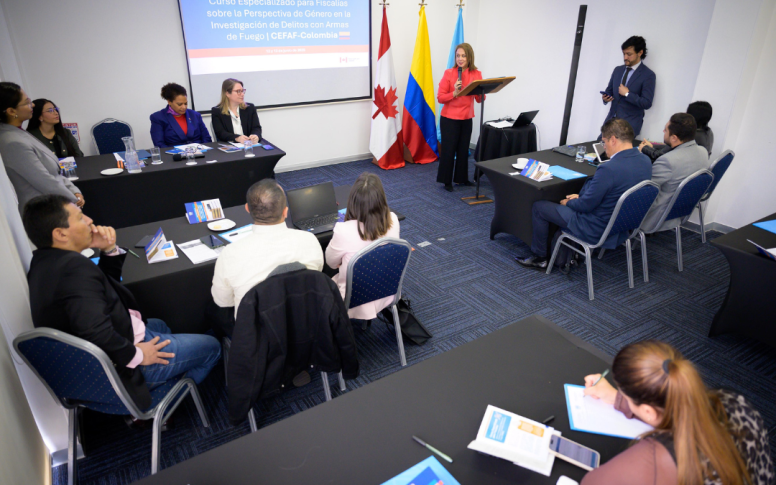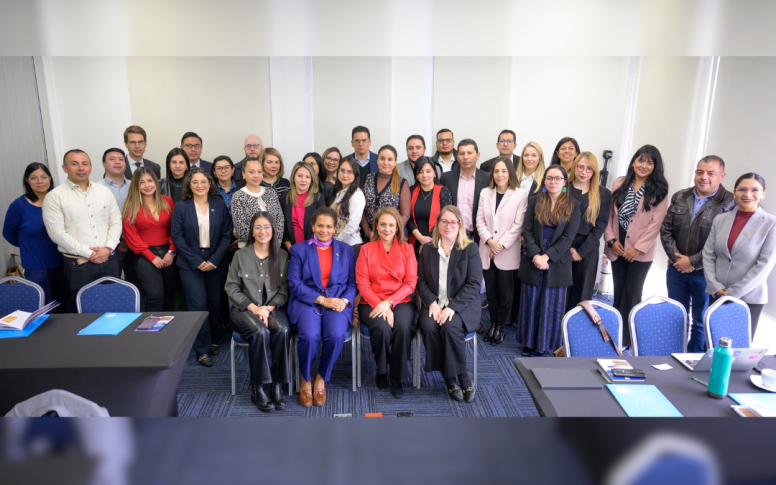From 10 to 13 June 2025, officials from Colombia’s Judiciary and Public Prosecutor’s Office in Bogota participated in two specialized training courses focused on integrating gender perspectives into firearms-related crime investigations. The trainings were organized by the United Nations Regional Centre for Peace, Disarmament and Development in Latin America and the Caribbean (UNLIREC) in collaboration with the Colombian Ministry of Foreign Affairs, the Judicial School of the Superior Council of the Judiciary, and the Directorate of Advanced Studies of the Office of the Attorney General.
The two courses, one designed for prosecutors and the other for judges, were developed in response to persistent shortcomings in crime scene management, evidence handling, legal strategy design and the influence of gender stereotypes. These gaps often result in insufficient admissible evidence, leading to impunity, particularly in cases of gender-based violence. The lack of gender-sensitive training among justice officials frequently hinders the proper identification and prosecution of crimes such as femicide and sexual violence.
Each course adopted a practical approach using hypothetical case studies. The course for prosecutors provided tools to identify key elements for building case theory and preparing for oral trial proceedings. The course for judges focused on incorporating a gender perspective into the analysis and evaluation of evidence, and on issuing rulings free from bias and stereotypes.

The trainings aimed to equip participants with the knowledge and skills to recognize and effectively address violence against women, ensuring that critical evidence such as firearms and ammunition supports survivors’ claims and that victims’ human rights are upheld throughout the legal process.
Notably, firearms are not only instruments of lethal violence in such contexts, but also tools of intimidation, coercion, and control used against women.
Addressing this issue ensures also that States align their work with global commitments to gender equality and peace. In this context, the trainings contribute directly to the achievements of Goals 5 and 16 of the 2030 Sustainable Development Agenda, which aim to eliminate all forms of violence against women and girls and to reduce illicit arms trafficking respectively. It also supports the implementation of the UN Pact for the Future and the Inter-American Convention on the Prevention, Punishment and Eradication of Violence Against Women (also known as Convention of Belém do Pará), reinforcing a comprehensive and coordinated approach to tackling gender-based violence and the misuse of weapons.
The courses were funded by the Government of Canada and forms part of UNLIREC’s ongoing efforts to support States in implementing UN General Assembly Resolution 65/69 on Women, Disarmament, Non-Proliferation and Arms Control.


